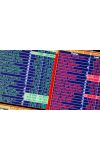
19 Sep 2011 01:51:15
The hero of The Fear Index is a brilliant physicist called Dr Alex Hoffman. Frustrated by a thankless research job at Cern's Large Hadron Collider, Hoffman teams up with a suave investment banker to create a hedge fund on the banks of Lake Geneva. The hedge fund makes decisions based not on human interaction but on predictions derived from a complex computer programme.
And for a long time, the computer can do no wrong. Hoffman is soon living a life of empty luxury in Geneva: he estimates his personal wealth to be "one billion, ballpark", he lives in a $60m lakeside house, and is married to Gabrielle, a beautiful artist. Then an intruder breaks into Hoffman's home and assaults him, injuring his head. This sets in motion a spiral of paranoia and violence that leaves our hero questioning the cause of it all.
As it happens, I know something about computer-driven funds as the firm I work for – the Man Group – has one of the oldest and most successful trend-following systems. Historically, momentum has proven to be a worthwhile strategy. In short, it doesn't matter if the dollar or the Dow Jones move up or down, but rather that one captures a "trend". And yes, just as in Harris's book, we employ many PhD graduates to analyse data and identify trends to build investment portfolios. These strategies have proven popular as they tend to do quite well in very difficult markets, such as in 2008.
But Harris has produced an interesting twist. Hoffman's computer programme tries to leave the world of probability behind by predicting fear as a motivation, and then uses this information to short-sell stocks. Harris offers a few examples of this in action, but none are very convincing, so let me try to construct one. A fear algorithm such as Harris describes would be able to predict the exact moment when investors panic about cigarettes being banned, irrespective of whether the ban happens or not – and so predict the resulting movement in tobacco-company stocks.
Easier said than done. We know from behavioural economics that investors can act irrationally and that human emotion plays a large role in decision-making, but predicting it is extremely difficult. Some of the most interesting research in this field has been done by Cambridge neurobiologist John Coates, who has examined how human behaviour affects financial decisions, and how swings in financial markets can produce physical responses in investors. Coates has shown how investors' bodies react to swings in the market: their metabolism speeds up, testosterone and adrenalin levels rise, they breathe faster, their nervous systems redistribute blood across their bodies, and so on.
What's more, these changes have a reinforcing effect, because alterations within traders' physiologies cause their risk preferences to shift dramatically, accentuating peaks and troughs. So, as with professional athletes, human biology gives us clues about the risk/reward decisions traders are likely to make. However, Harris goes beyond this: Hoffman's computer predicts not only volatility but also pinpoints when investors will stop acting rationally and fear will take over. And this is where, for me, Harris goes one step too far. For the past 25 years I have seen people hoping to predict stocks based on chaos theory, artificial intelligence, neural network and real-time linguistic search. So far, they've had very little success.

